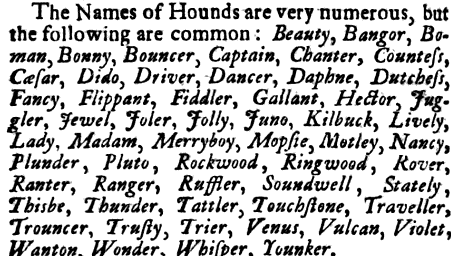The earliest dog named Rover I found is fromin a 1740 poem.
Etymology
The name is most likely from rover, n.2 in the OED, specifically sense 2a:
A person who travels from place to place without fixed route or destination, esp. over a wide area; a wanderer, a roamer; a nomad. Also: an animal which ranges over a wide area.
This is etymologically from the -er suffix applied to rove v.2, the first definition in the OED being:
To shoot at an arbitrarily selected mark, and senses deriving from this.
Etymology: Origin uncertain; perhaps a midland form corresponding to northern rave v.2, either as an analogical formation or as the non-northern reflex of a borrowing < the possible early Scandinavian etymon of rave v.2 (although this would imply a date of borrowing significantly earlier than either English word is attested).
On the other hand, the etymology of piratical rover, n.1 (cf sea-rover) is:
< Middle Dutch rōver or its cognate Middle Low German rōver reaver n. Compare Middle Dutch seerōver , Middle Low German sērȫver sea-rover n. and also Anglo-Norman roveres sur le mere , plural (1429 or earlier). Compare later rove v.1

